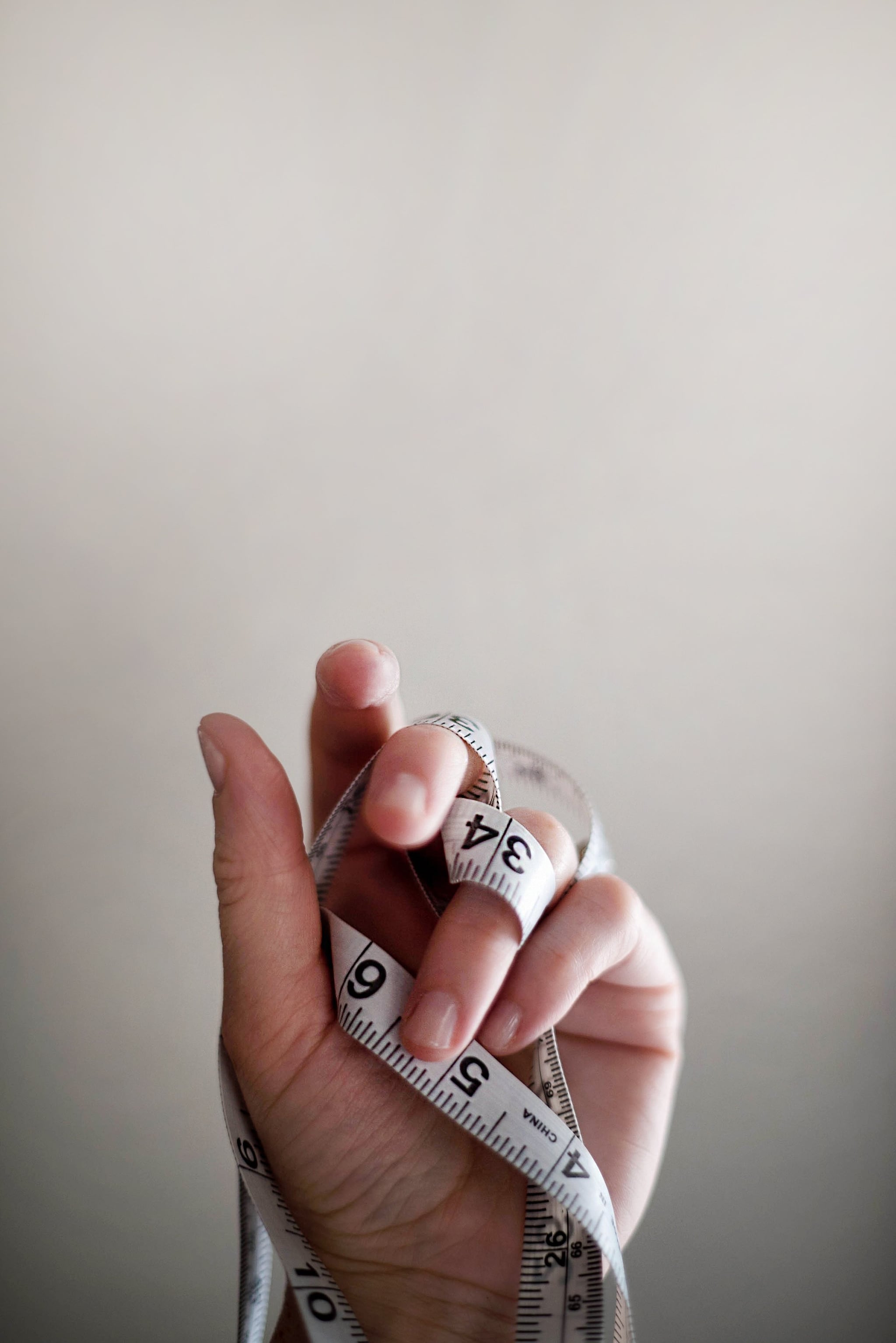Body Composition Definition
Here's What Body Composition Actually Is — and How It Figures Into Your Weight Loss

When we look at total body weight, we are not recognizing the difference between lean muscle and body fat. "If we look at the ratio between lean muscle and body fat and see that the body fat percentage is fairly high for someone, whether their total body weight is normal, or overweight, or obese, we know for a fact that this person isn't as healthy as he/she can be, and can definitely stand to lean out," says Rui Li, President-CEO NASM CPT, CES, FNS, New York Personal Training.
Simply put, body composition is what your body is made of. Seems pretty simple, right? In fact it is. "You're basically made up of fat mass and fat-free mass. Fat-free mass is defined as basically all things not fat; muscle, organs, tendons, bones, etc.," says Hans David Rearick, Yofima, founder and CEO.
Think of the two categories of needs (fat-free mass) and wants (fat). "If your wants outweigh your needs, then you are in excess and have too much," says Rearick. This is unhealthy. If your needs outweigh your wants, then you are deprived. This too is unhealthy. You need fat! "It's OK to want a little, but you do not need too much! Men need to have 5 percent body fat, women need to have 12 percent. The further away (in either direction — because keep in mind those are the minimums) from those percentages you are, the more unhealthy you become," says Rearick.
You aren't going to control the weight of your bones, organs or tissues, but you can control the amount of fat and muscle you carry.
There are plenty of people who are within healthy weight ranges but who are at 30 percent body fat. "This is essentially skinny fat, which puts the person at a higher risk for a variety of health risks, including cardiovascular disease," says Li.
On the other end of the spectrum, someone who is at 10 percent body fat but has a lot of lean muscle, and yet he/she is heavier than the "normal" weight range, would be overwhelmingly healthier and less at risk for serious health concerns compared to the skinny fat person.
"I often get asked about what BMI cutoff I use to determine who is eligible to undergo certain plastic surgery procedures such as liposuction," says celebrity plastic surgeon Dr. Ruth Celestin. "That's when the prospective patient and I have a nice chat about body composition and why it's a more important piece of information for determining the quality of your health than BMI or your weight on the scale alone," says Dr. Celestin.
"Someone who stands at 5'6" and weighs 155 pounds will have a BMI, or body mass index, of 25 and be classified as 'overweight,'" says Dr. Celestin. That's pretty much all the information it will provide. "BMI provides a simple numeric measure of a person's thickness or thinness, allowing health professionals to discuss weight problems more objectively with their patients," says Dr. Celestin.
But the story shouldn't end there. That same person may have a body composition analysis that paints a much more complex (but also more useful) picture of their health. "Muscle weighs significantly more than fat," says Dr. Celestin. So a heavier person may be healthier than the scale or BMI would have you believe, due to the amount of lean mass their body is made of.
Many times in a weight-loss journey, people will get frustrated that the scale isn't moving downwards fast enough. "I always remind them that what may be happening when they think they've 'plateaued' is their lean body muscle is increasing, which will cause you to weigh more than you appear. Sometimes when the scale isn't moving much, you'll notice your pants size is decreasing — and increased lean muscle is the reason why! Lean muscle is a great fat burner even when we are at rest, so more of that is a good thing, even if it doesn't exactly translate to a lower weight or BMI!" says Dr. Celestin.
Body composition is measured a few different ways. "Examples include skinfold calipers, hydrostatic (underwater) weighing, and the DEXA scan (considered the gold standard of body composition measurement)," says Dr. Celestin. A body composition analysis tells you how much "lean mass" (internal organs, skeletal muscle mass, body water, etc.) vs. "fat mass" (fatty tissue) you have.
As far as diet, it's important to figure out what works best for your body type. What causes weight loss in one person may cause maintenance or weight gain in another.



